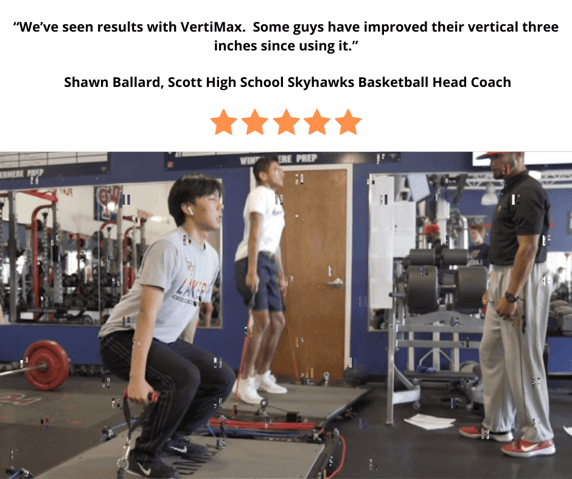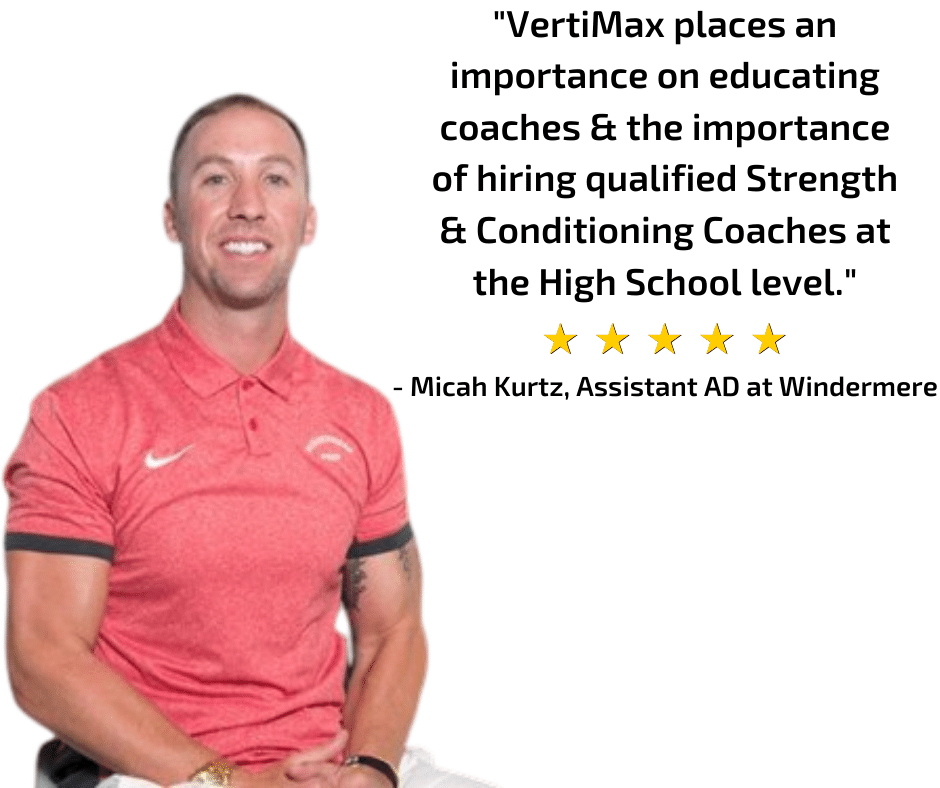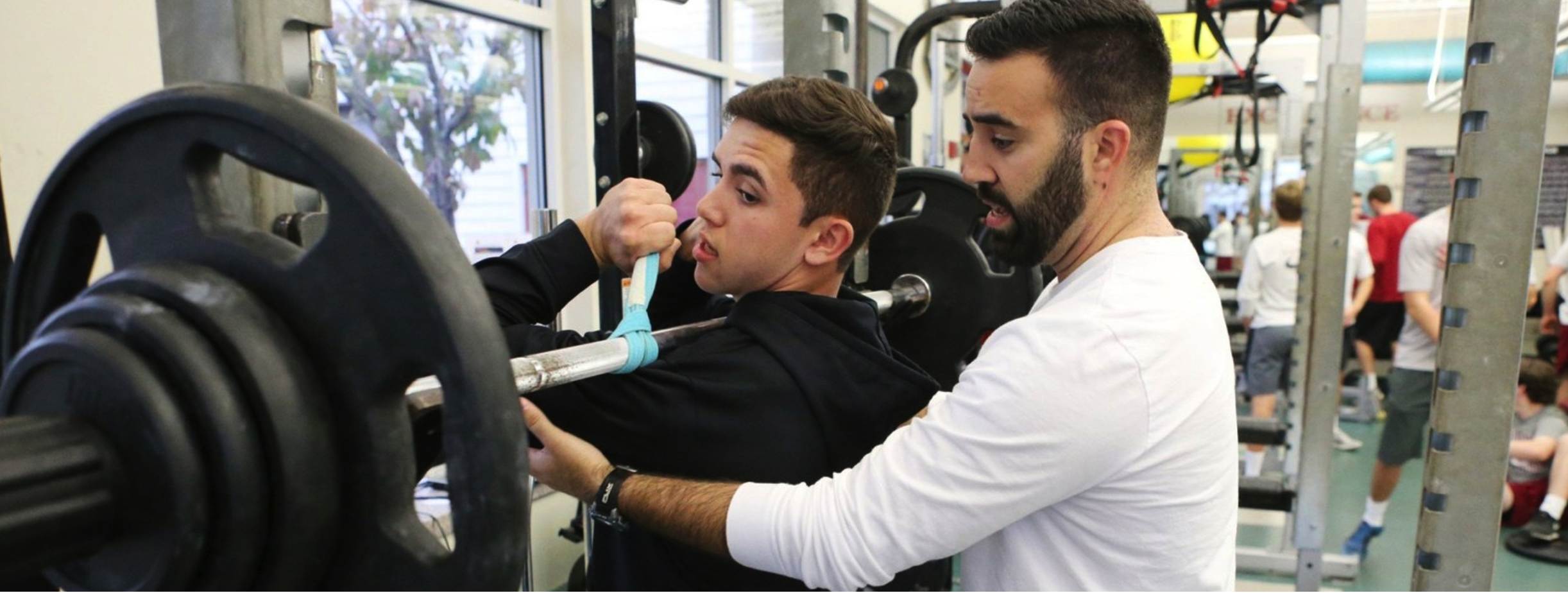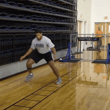The responsibility of preparing high school athletes for collegiate level athletics typically falls within the scope of responsibility of high school strength coaches and sports heads. With that said, it’s hard to understand why more school districts aren’t prioritizing more on the belief that strength coaches are not only important, but necessary. After all, there are over 8 million student athletes participating in high school athletics and for many, their first time training is typically in the high school weight room. Organizations like NHSSCA(National High School Strength Coaches Association) & NSCA (National Strength and Conditioning Association) are playing a part in calling attention to the importance of training athletes safely and preparing them for the next level.
I’d like to discuss some of the benefits of a high school strength program as well as certain things college programs expect their incoming athletes to be capable of.
Simply put, there are not enough full time strength and conditioning professionals at the high school level. I’ve been working with high school athletic departments for five years now and while I can’t speak for every high school in the United States, I can speak for what I have both seen personally and heard from other strength coaches around the country. There needs to be more certified & credentialed strength/performance coaches at the high school level.
School districts around the country need to understand the importance and benefits of a professionally run strength and conditioning program and that it is an investment for the now and the future.
1. The entire athletic department will benefit from hiring a strength and conditioning professional
The S&C coach is an educated expert on muscle and body functionality and movement for all sports; boys and girls. Having one increases the safety of the student athletes which reduces the liability of the school. The S&C coach is responsible for designing athletic workouts, as well as teaching the proper lifting, spotting and stretching techniques. Schools require a certified athletic trainer to work with an injured athlete on the playing field, the same should apply for the coach who is supervising a strength and conditioning program.
Personally, I love that a strength coach allows each sports head more time to focus on their day-to-day practice and game schedule and the strength coach focuses on the strength and conditioning of the team.
If you look at the most successful athletic programs, you will find a great strength coach is like the glue holding all the pieces of the program together.
2. Culture building & shifting momentum from the weight room to the field
For the past 2 years, I’ve had the pleasure of working with coaches and leaders with the NHSSCA organization. Time after time again I’ve heard awesome stories about the accomplishments that have been achieved in the weight room as well as on/off the field. While a strength coaches responsibility is to help athletes stay healthy, there is also a certain degree of confidence that is created in the weight room.
A good strength coach has an understanding of what different sports demand out of an athlete. That understanding ranges from muscular to energy, injury prevention and health standpoint. When there is great communication between a strength coach and a sport coach, they can combine their viewpoints of an athlete and team to development the big picture goal.
"I always use the analogy of pulled pork when training and mentoring young athletes. Microwavable pulled pork might satisfy your instant hunger because it was quick and easy but, pulled pork you prepared in the crockpot is going to taste way better. The crockpot pulled pork is going to require work and a process but in the long run it is going to be juicy with full of flavor." - Patrick Nolan
3. A strength coach is knowledgeable in long-term athletic development and exercise science

Strength coaches at nearly every level need to be comfortable working with athletes in a group setting. With this, it’s important that they understand how to properly format a long-term athletic development program that applies to every athlete in that group.
I know when I was in high school we had a weight training class during the day. It was lead by our P.E. teacher who did not have any written programming for us to follow. As you can imagine, this didn’t create the safest training environment.
Professionally trained and educated strength coaches will bring an attention to detail factor to the program and athletes.
Bonus: A strength coach has a different relationship with the athlete than the sports coach
It’s nice to hear from a different person every once in a while. Many athletes have different learning styles, so sometimes the program's goals will resonate better when presented differently.

While running a high school strength and conditioning program is important for the programs current athletes, it plays a huge role in preparing athletes for the next level.
NCAA programs pride themselves on being well oiled machines. There is a strategic relationship ranging from the nutrition staff to the strength staff to the sports heads. It’s time to get to work, not teach the basics.
Aside from coming in with an open mindset, strength coaches hope and expect freshman athletes to be capable of a few things.
1. Body Control
Can your athlete squat to parallel without any weight on their shoulders? Can they control their body without an external load? Athletes will typically undergo a movement and stability test before weight training begins. Mechanics must be understood by the athlete or they will certainly be limiting their upside. Many coaches will use different isometric holds that allow the athlete to achieve proper form and feel how the moment should feel.
2. Back Development
A couple years ago I was at an event where I was fortunate to hear Coach Kaz Kazadi(Assistance A.D. for Human Performance at SMU) talk about the importance of the trunk. In fact, he said it was the first thing he looked at when analyzing his athletes. A strong back will allow for greater gains in Olympic lifts.
3. Proper Running Mechanics & Deceleration
Training proper mechanics from the beginning will allow your athletes to achieve greater results. Typically, movement and speed sessions at the collegiate level are often taught in large groups with a limited number of coaches. Focusing on proper mechanics at the high school level will allow collegiate coaches to have a greater impact and make them more effective.
A lot of ACL tears and knee injuries occur when the athlete is decelerating or changing direction. Train your athletes to properly decelerate and you will allow them the opportunity to decrease their potential for injury.























